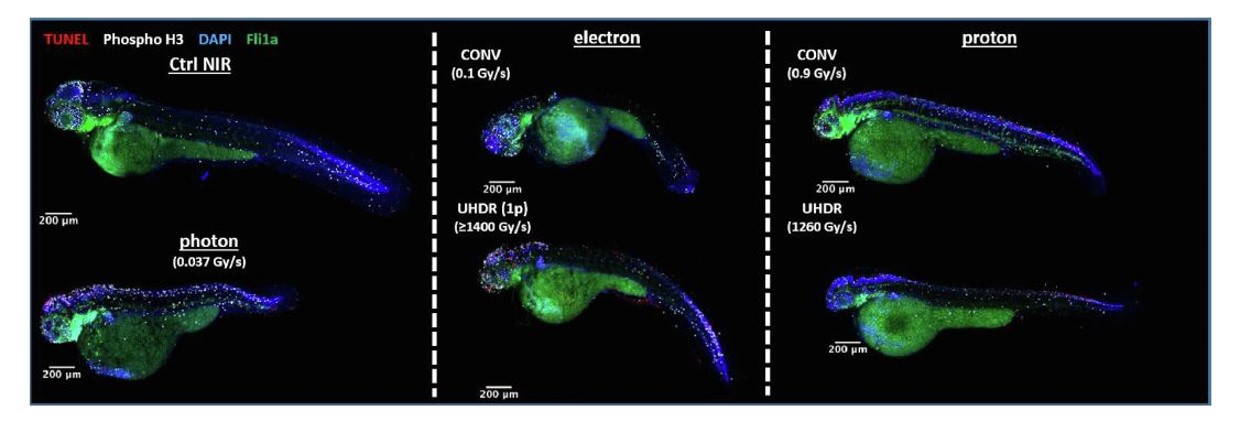[1056] Innovation in radiobiology applied to radiotherapy (LiRR)

Radiotherapy (RT) is one of the most effective and cost-effective modalities for treating cancer and today more than half of all cancer patients will receive RT during their treatment. Thanks to technological and radiobiological improvements, RT is today a precise and conformational treatment. However, the treatment of radioresistant tumors remains limited by the tolerance of healthy tissues, which prevents increasing the RT dose and reaching a curative threshold. Thus, enhancing the differential effect of RT between tumor and healthy tissue, either by radiosensitizing the tumor or protecting healthy tissues selectively, remains the overarching goal in radio-oncology.
Our laboratory develops translational research in radio-oncology to transfer advanced RT strategies to the clinic. This program aims at offering innovative treatments for our patients and strengthen multidisciplinary interactions amongst the fields of radiobiology, physics, adult and pediatric oncology, imaging, and pharmacology.
FLASH Radiotherapy:
Our group pioneered FLASH radiotherapy which is a breakthrough in radio-oncology based upon the administration of irradiation in an extremely short time (milliseconds or less) and at ultra-high dose rates (greater than 100 Gy/s), as opposed to standard conventional radiation which is delivered over several minutes at conventional dose rates (dose rates of 0.1 Gy/s). The main advantage of FLASH is to induce similar tumor control and reduce normal tissue complications compared to standard RT at conventional dose rate. While continuing our studies with protons and VHEE in collaboration with PSI and CERN, we are developing at HUG/UNIGE a new hub dedicated to X-rays for conformational FLASH radiotherapy. Our work primarily focuses on brain tumors, particularly rare pediatric tumors requiring special attention, and is funded by 7 academic grants.
Personalized Radiotherapy: Focus on Breast Cancer
Today, breast cancer is no longer considered a single disease but rather a set of different diseases. The understanding and classification of the disease at the molecular level have brought enormous benefits in overall survival and quality of life for patients, allowing for the personalization of treatment. Our goal is to personalize breast cancer radiotherapy based on its heterogeneity, which is considered today as the main challenge in innovation in breast radiotherapy.
